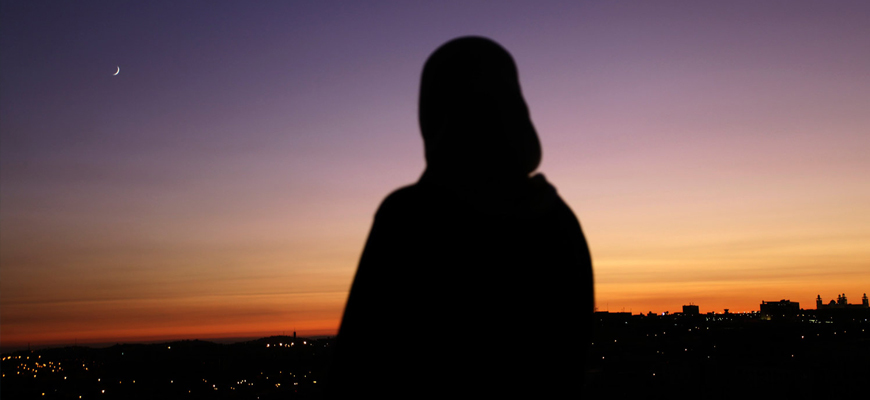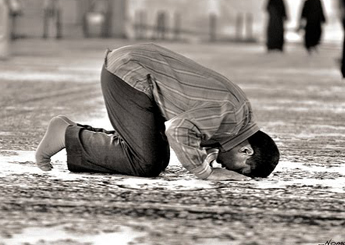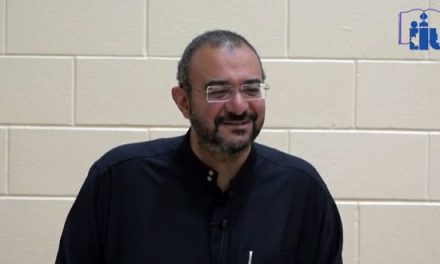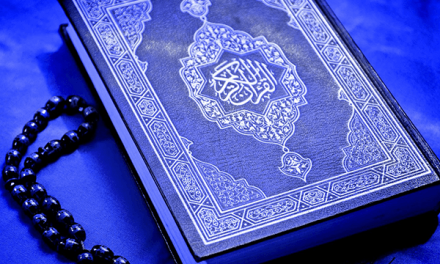Can women lead congregational prayers?
There is no dispute that women could lead other women in congregational prayers, Al-Shafi`i, Ibn Abu Shaibah and Abdul-Razzaq, among others, reported that Um Salamah, the Mother of the Believers, may Allah be pleased with her, led other women in prayers while standing among them in the same row.
Muhammad Ibn Al-Husain also reported from Ibrahim An-Nakh`i that Aisha, may Allah be pleased with her, used to lead women in prayer during the month of Ramadan standing among them in the same row. [1]Al-Hakim reported in his Mustadrak that the Mother of Believers `A’ishah (may Allah be pleased with her) used to call the adhan and iqamah and then lead women in prayers. [2]
Despite the authenticity of these narrations and the practice of the Mothers of the Believers, I was surprised to find out that many major scholars were actually hesitant to allow women to led other women in prayers! For example, Ibn Qudamah writes:
There are two different opinions regarding whether it is desirable for a woman to lead other women in congregational prayer. One reported opinion is that it is recommended. Aisha, Um Salamah, `Ata’, Al-Thawri, Al-Awza`i, Al-Shafi`i, Ishaq, and Abu Thawr are of the opinion that a woman can lead other women in prayer. On the other hand, it is narrated that Ahmad Ibn Hanbal (may Allah be merciful to him) did not recommend it. The Hanafi scholars also regarded it undesirable, but if such congregational prayer is done, it will still be valid. Furthermore, Al-Sha`bi, Al-Nakh`i and Qatadah maintain that women are permitted to perform prayer this way in supererogatory prayers but not in obligatory ones. [3]
It is interesting that these scholars were distracted from the above authentic narrations with some whimsical opinions or narrations that are at the weakest level of authenticity. It is reported that Jabir ibn Abdullah (may Allah be pleased with him) said: The Prophet (peace and blessings be upon him) addressed us in a speech and stated, “A woman may not lead a man in Prayer.” Another version of the hadith: “A man may not be led by a woman in prayer, nor may a muhajjir (a believer who migrated to Medina) can be led by a Bedouin, nor may a committed believer be led by a corrupt person unless one is coerced by a ruler and fears his sword or whip.”[4] Another weak hadith was reported by Ibn Abi Shaibah in his Musanaf from Abu Bakr quoting Waki` from ibn Abi Zi’b from a freed slave of Bani Hashim from `Ali that he said: “Women should not lead prayers.” [5]
However, these three narrations, despite being popular in the scholarly and social contexts, are “weak” and lying is obvious in their wordings.
It is to be noted here that the popular saying, “Move them back to the rear designated for them by Allah,” is not a hadith and cannot be used to corroborate any argument in this question. Rather, it is a saying reported in Al-Muwatta’ from Abdullah Ibn Mas`ud, the companion, may Allah be pleased with him. [6]
In the Musannaf of Abdul-Razzaq, Ibn Mas`ud reportedly said:
Women and men of the Children of Israel used to pray together. Some women would wear high wooden shoes to get taller so their lovers can identify them. Thus, they were afflicted with menstruation. Therefore, move women back to the rear as this is the place designated for them by Allah. [7]
It is clear and interesting that Ibn Mas`ud, if the narration is true, copied this command of “move women back” from somewhere in the tradition of the Children of Israel. In Islam, women are not “punished” by menstruation, as mentioned in some biblical sources, and they are not supposed to be pushed back because some other women were involved in some sins. In Islam, “no soul shall carry the burden of another” (6:164).
In fact, there is an authentic hadith from the time of the Prophet, peace be upon him, in which one of the female companions lead women and men in congregational prayers. The following is an analysis of the hadith and its implication.
Uthman Ibn Abu Shaibah narrated from Wakee` Ibn Al-Jarrah, from Al-Walid Ibn Abdullah Ibn Jumai`, from his grandmother, from Abdul-Rahman Ibn Khallad Al-Ansari, from Um Waraqah Al-Ansariyyah:
When the Prophet, peace be upon him, proceeded for the Battle of Badr, I said to him: O Prophet of Allah, allow me to accompany you in the battle; I shall nurse the patients and hopefully Allah will grant me martyrdom. He said: “Stay at your home; Allah, the Almighty, will bestow martyrdom upon you.” The narrator said: Hence she was called the martyr. She memorized the whole Quran and sought permission from the Prophet, peace be upon him, to have a mu’adhin (a caller to prayer) in the mosque that she had in her house. The Prophet granted her request. Abdul-Rahman Ibn Khallad (the reporter of this Hadith) said, “I did see her mu’adhin who was a very old man.
The hadith was narrated by Abu Dawud, with no reservations, and it is ranked hasan (sound) by Al-Albani. [8]
Hadith Scholars disagreed about the authenticity of this hadith, despite the status of Um Waraqah herself. Um Waraqah was one of the companions who transmitted the recitation the Quran before it was recorded in writing. She could do so because she had memorized the entire corpus.[9]
Al-Arna’ut, for example, cited that, “The reporters’ chain (isnad) of the hadith is weak because Abdul-Rahman Ibn Khallad and the grandmother of Al-Walid ibn Abdullah Ibn Jumai`, Laila Bint Malik, are unknown.”
However, with all respect to Sheikh Al-Arna’ut’s scholarship, these narrators are not unknown. In fact, the hadith was narrated through different chains of reporters up to Al- Walid Ibn Abdullah Ibn Jumai` by: Ibn Sa`d in At-Tabaqat (both the long and short versions of the hadith) 8/457, Ibn Abi Shaibah 12/527-528, Ahmad 27282, Ibn Abi `Asim in Al-Ahad wal Mathani 3366 and 3367, Al-Tabarani 25/326-327, Al-Hakim 1203, Al-Baihaqi in al-Sunan 1/406 and 3/130 and Al-Dala’il 6/381.
In addition, Al-Hakim narrated the same hadith, according to Bukhari and Muslim criteria, in his Mustdarak with the following wordings: “and the Prophet told her to lead the people of her house in the obligatory prayers.”
Abu Dawud said, “I do not know a hadith having a full, connected isnad in this question other than this hadith. Indeed, Imam Muslim has already cited Al-Waild ibn Jumai` as a reliable reference”[10]
Furthermore, Ibn Khuzaimah narrated this hadith in his Sahih, and Al-Albani ranked it as sound (hasan). [11]
Ibn Hiban also listed Abdul-Rahman Ibn Khallad and Al-Walid Ibn Jumai` as credible in his Al-Thiqat (The Trustworthy). [12]
Commenting on this report Al-San`ani says in his Subul Al-Salam:
This hadith proves the validity of the woman’s leading her household in prayer, even if the congregation includes males because Um Waraqah had a mu’dhin, an aged male who called people for prayers, as mentioned in the hadith. Apparently she led him and her male and female servants. Scholars holding this opinion include Abu Thawr, Al-Muzani and Al-Tabari. The majority of scholars, however, do not support this view. [13]
Ibn Taymiyah also supported women leading men in prayers, and rejected Ibn Hazm’s claim that there is consensus among scholars on the prohibition of women’s leading men in prayers altogether. Ibn Taymiyah wrote:
A learned woman leading unlettered men in the night prayers of Ramadan is permissible according to the famous opinion from Ahmad. As for all other congregational prayers, there are two different opinions that Ahmad gave.[14]
He also wrote,
The famous opinion of Ahmad is the permissibility of woman’s leading men in prayer when need arises, such as when she is a Reciter of the Quran while men are not. Thus, she can lead them in the tarawih prayer, since the Prophet, peace be upon him, allowed Um Waraqah to lead her household in prayer and appointed a mu’dhin to call for prayers for her.[15]
In Al-Moghni, Ibn Qudamah said,
Some of our companions argue that a woman can lead men in prayers and that she prays behind them based on the report of Umm Waraah bint `Abdullah ibn Al-Harith that the Messenger of Allah appointed a mu’dhin for her and told her to lead her household, which includes both men and women. Our opinion against this is supported by the Prophet’s hadith “A woman may not lead a man in prayer”. In addition, a woman cannot call adhan for men, and by the same token, she cannot lead them in prayer.[16]
The weakness of the hadith cited as evidence by Ibn Qudamah has been shown above. However, the case of a woman leading men in prayers was reported only in relation to the house mosques and prayer areas; there are no reports of women doing so in the grand mosques (al-masjid al-jami`).
Keeping all of the above in mind, and based on where the Islamic subcultures stand today, the opinion I choose on this issue is to restrict the women leading men in prayers to house mosques and family settings. It is more appropriate if a female in a family recites the Quran perfectly, while the rest do not, that she leads the prayers.
Scholars who allowed women to lead the prayers differed on whether she should stand in front of the men or behind them. There is no definite account from the Prophet’s tradition about this issue, and the Um Waraqah narrations did not give us this detail. The most popular opinion here is Imam Ahmad’s, which Ibn Taymiyyah, again, cited in his Fatawa, that she stands behind them since it is more dignifying for her (astar laha).[17]
[1] Mohammad Al-Azimabadi, Awn al-Ma’bud, Beirut: Dar al-Fikr, 1995/226.
[2] Al-Hakim, Al-ustadrak `ala As-Sahihain, 1/320.
[3] Al-Moghni 3/37.
[4] Ibn Majah’ Sunan, 2/183 and 1/343.
[5] Ibn Abi Shaibah’s Musanaf 1/430.
[6] Al-Mwatta’ (Muhammad ibn Al-Hasan’s narration) 2/58. It is also reported by At-Tabarani and Abdur-Razzaq.
[7] Abdur-Razzaq’s Musannaf 3/149.
[8] Abu Dawud’s Sunan 1/442 591.
[9] Ibn Saad, Kitab al-Tabaqat al-Kabir, 8/335..
[10] Nasb Ar-Rayah 2/32.
[11] Ibn Khuzaimah 2/810.
[12] Al-Badr Al-Muneer 4/392.
[13] Subul As-Salam 2/35.
[14] Naqd Maratib al-Ijma` 290.
[15] Al-Qawa`id An-Nuraniyah 1/120.
[16] Al-Moghni fi Fiqh Al-Imam Ahmad ibn Hanbal Ash-Shaibani 2/34.
[17] Ibn Taymiyyah, Majmu’ Al-Fatawa, Medina: Majma’ Fahd, 1995, 22/249.






